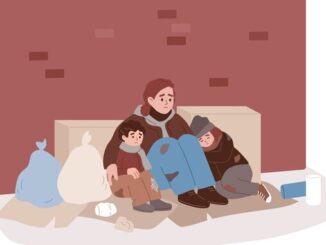
Homeless people face a number of health inequalities and may find it difficult to access healthcare services. How can your practice ensure it is registering and referring these patients?
According to research by Homeless Link, 92% of homeless people in the UK are registered with a GP – but 18% of those had been refused registration in the past 12 months and many more believed they were not receiving the help they needed for their health problems. Some of these refusals were due to behavioural issues or missed appointments, but others shared that they were refused access due to lack of identification or proof of address.
What can GPs do to support the registration and care of these patients to ensure that homeless patients receive the help they need?
Registering homeless patients
GPs have a responsibility to register people living within their catchment area who are homeless, have no fixed home or are legitimately unable to provide documentation.
Homeless patients can register using a temporary address, such as a friend’s address or a day centre, or they can use the practice address to register if the previous options aren’t available to them. However, practices must try to have a way to contact them with information such as test results.
Some areas have special services to support homeless patients and practices can refer patients into these services if the patient agrees, or if it is in their best interests.
Best practice for treating homeless patients
When you are treating homeless patients your practice should consider implementing the following actions.
- Offer registrants the opportunity to speak privately, away from the reception area, to avoid any feelings of anxiety.
- Introduce double appointments.
- Keep prescriptions as short a duration as possible.
- Ensure that clear boundaries for consultations are in place.
- Give fast access to a named GP.
- Waive any charges for housing letters or medical reports.
Duty to refer
The Homelessness Reduction Act (2017) came into force in 2018 and emphasises the prevention of homelessness. According to section 10, public authorities should notify a local housing authority if they believe a patient is homeless or are at risk of becoming homeless.
This duty refers to:
- NHS organisations providing inpatient care.
- Emergency departments.
- Urgent treatment centres.
Primary care providers are not mandatorily obliged to refer homeless or at-risk patients, but it is good for GP practices to refer these patients – it is beneficial for GP practices to refer patients who are homeless, or at risk of becoming homeless, to a local housing authority for further support.
Patient referrals must include the patient’s name, their contact details and an agreed reason for their referral. For homeless patients with no contact details, they can use a temporary address or arrange for further information regarding the referral to be picked up from the practice. Referrals can be made without consent in order to safeguard children and vulnerable adults.
Whilst local authorities will usually know if a patient is actually homeless, identifying patients at risk of homelessness is less straight forward. Here are some signs to look out for:
- Frequent changes to the patient’s address.
- Problems with debt, particularly rent or mortgage arrears.
- Problems with a landlord, being threatened with eviction or served notice to leave.
- Being a victim of domestic abuse, or other forms of violence, threats or intimidation.
- Approaching discharge from hospital, armed forces or release from custody, with no accommodation available to them.
- Having previously been in care, the armed forces or in prison.


Be the first to comment